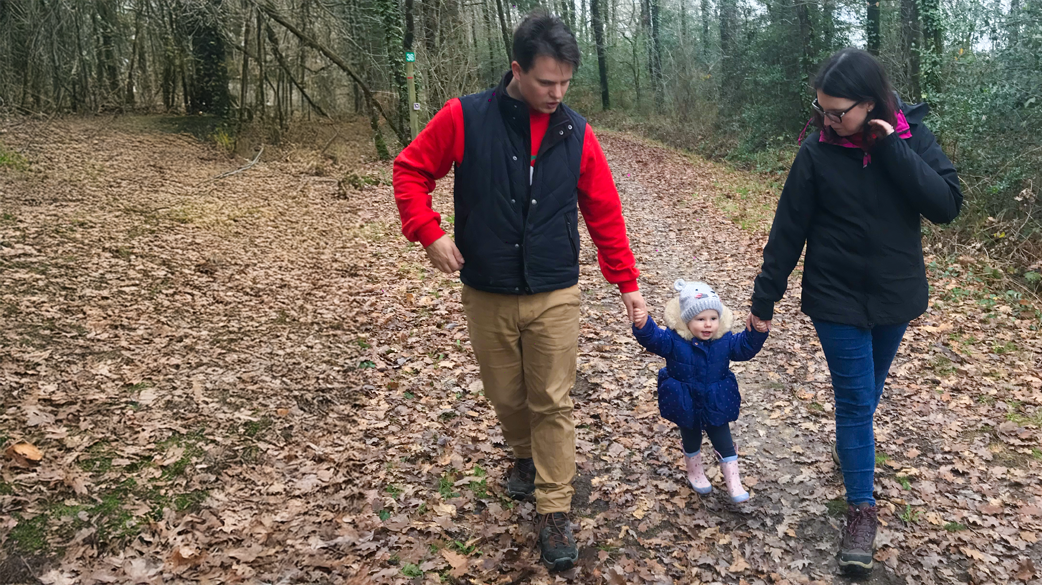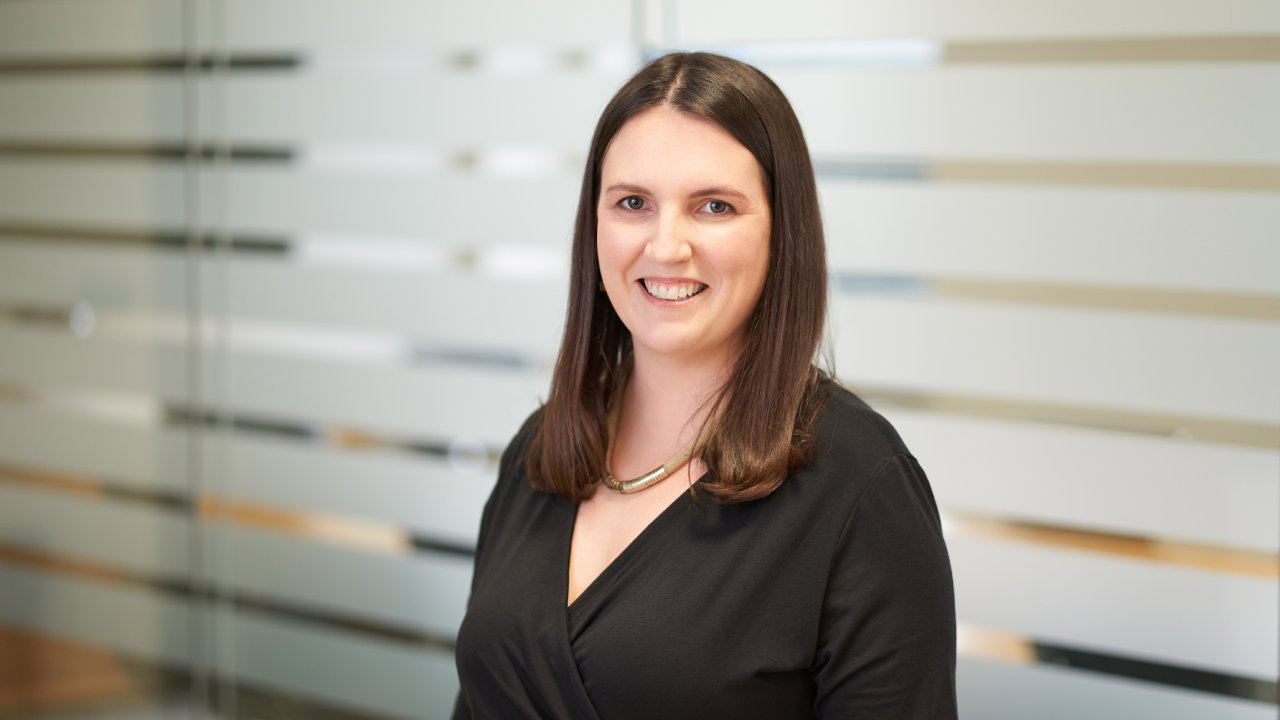”One of the best ways to support new mothers, is for all companies to offer and support more paternity leave. Women within private equity are much more likely to be in dual career couples, so have a partner who also works in private equity and so actually, if you really want to be supporting women to succeed in the industry, you have to let their partners participate in parenting too.”
From sleepless nights and expressing milk in the office to juggling homework and networking, Suzanne Pike shares her experience as a mother of three and Partner and Head of Origination at ECI.
“On days where I am in the office, I try to keep my diary clear if possible between 4:45 and 8pm, so that I can see the children in the evening before they go to bed. I flex it a lot, of course. I’ll have a work event until 11pm, or there may be urgent meetings or meetings involving multiple diaries, so I’ll always shift things around to do the best thing by ECI. But the team knows, if you want a one to one catch up with me or it’s a run-of-the-mill meeting that is not urgent, just don’t put it in that slot please.
“It’s something that ECI has always been very good at. If you’ve got sports day or a school play, just put it in the diary as sports day or school play, and don’t use your holiday for that, because we all put enough hours into these jobs. It’s about two-way flexibility.
“And there is an important cultural point there about not catastrophising and putting people off before they even go off on mat leave, because the reality is, this is an industry where, yes, it’s demanding, and we work a lot of hours, but we have bags of independence, flexibility and autonomy compared to a lot of people. If you’re a midwife on shift, or a teacher, you’re much more tied than we are. It’s actually not the most challenging career to be a parent in. It’s demanding, but it’s got its upsides as well.”
Suzanne has experienced maternity leave as a manager as well as a mother, and recently led an internal initiative to give younger generations confidence that being a parent long term and working in private equity is compatible.
“We wanted to show that you can, not just survive, but actually thrive and there are lots of ways we support that at ECI, and we spoke to people in other private equity firms as well. Their experiences of taking leave were pretty universal actually.”
Support staged returns from maternity leave – it helps colleagues appreciate that returners are in a transition phase and gives families time to adjust to the new normal.
“In my first maternity leave I took six months off, so I came back when my baby was just over five months old and then came back full time five days a week in the office. It was almost a decade ago now and, of course, pre COVID. The idea of a staged return wasn’t something I had even thought about and we had not had lots of women taking leave at that time in ECI to provide examples. There wasn’t hybrid working because we didn’t even really have the technology to facilitate that yet.
“My husband and I shared leave every time. So he took maybe 3 1/2 to four months off, which was brilliant in lots of ways, and definitely breaks the default parent thing early on. I think in hindsight I might have taken a little bit longer and each time I did take a little bit longer than I did the first time, for a few different reasons.
“With my other two children, I did ask for a staged return, which I do think works very well. The business gets you back in for a chunk of your week for a number of weeks and if you’re doing that wisely and you’re prioritising and you’re delivering the parts where you bring most value, then they’re getting what they most value out of you and you’re still getting a little bit of the time to transition.
“I do believe that’s where you see it go wrong. It’s not usually the planning for leave. It probably doesn’t really matter that much whether you’re out for three months or 12 months, really. But if you get the return wrong, that’s the point where people have seen that, as career driven as they might be, life can be quite fulfilling outside of work. They’ve had a bit of distance. At that point, if they’re feeling like it’s all too much, that’s the bit where they’re going to leave.”

“There is an important cultural point there about not catastrophising and putting people off before they even go off on mat leave.”
Keeping in touch (KIT) days can be easier and more productive from home.
“My second child was 12 weeks old when we went into the first lockdown. So, my second maternity leave was a little bit different. But I actually did a lot more keeping in touch during that time, because that was the birth of Microsoft Teams and so I could do that.
“In our research, a lot of people said KIT days were more stressful than they were worth in practice. It’s different for different people, but if you are breastfeeding, then trying to work out how to leave the baby for a full day’s travelling is really challenging.
“The landscape post Covid has made it easier for women to participate and for the men who want to be at home more. So that did mean I felt much more enabled. That was the easiest, smoothest return to work because, whilst I appreciate having the balance of office and home, at that time, we didn’t have a choice. We had to work from home full time and so all I had to worry about in the morning was going and sitting and opening up my laptop, not running to a nursery, or packing all the equipment so that I could express at work or racing out to make sure I could get home for the bedtime feed. I just had to open my laptop up and I felt like that was much easier to come back and hit the ground running.”
Schedule check-ins with returners periodically, not just on day one.
“Managing the return to work is arguably more important than planning for maternity leave. The first time I came back I was still breastfeeding, we didn’t have meeting rooms with a lock on the door. These days in our new office, we thought ahead and we have a wellbeing room with a lock and a fridge and somewhere comfortable to sit.
“And it’s not just about the room. The timing is not that flexible and you have to find two slots in your day for expressing and they have to be respected. My daughter had awful, awful, reflux, and so we were still up all night, every night with her. When I came back to work we were sleeping in in shifts of three hours each, for months and months and months.
“By the time I came back after my third child, my concern about coming back was less about having the baby at home and more about my now eight year old taking on all the extracurricular stuff and the homework and everything else but that’s where it comes back to recognising the flexibility and autonomy we have and working out how to use that effectively to manage both work and home.”
Find out the returner’s priorities and support them – it might be getting back to deal-making immediately, it might be treading water for a few months.
“What are your goals and your priorities? This is the conversation that needs to happen on their return. If somebody is sitting on a couple of boards or if they’re a director trying to get promoted to partner and they need to get that deal under their belt, then giving them an internal project is not needle shifting if someone’s trying to make up for lost time. They want to be on new deals.
“Equally, if somebody says, do you know what, I’m up for this long term, but for the next year and a half, I want to stand still and I want to prioritise flexibility, we should learn to accommodate that as well. We’ve spoken about that internally because these are quite long term careers that people are in for multi decades and so to retain staff, we have to take the long view.”
Encourage transparency in work diaries.
“We talked about this quite a lot in ECI and I think we are in good place where people are very transparent about important family commitments in diaries. So whatever they’re doing, that’s in the diary, and it’s clear as to whether something is movable or non-movable. So as I mentioned, if you’ve got sports day or a school play, just put it in the diary as sports day or school play. I will almost always walk my children to school on a Friday because I almost always work from home. But if I need to be in the office, I make other arrangements. You know, if you want to retain diversity longer term, then you need to find ways to be flexible for a short period of somebody’s life.”

“You know, if you want to retain diversity longer term, then you need to find ways to be flexible for a short period of somebody’s life.”
All networking doesn’t all have to happen in the evenings.
“I certainly found it harder to maintain and build my networks after having children. To keep building your external network in the market, and level of visibility internally, is difficult because for a period of time you are so focused on efficiency and you still want to deliver all the actual work you need to do. And a big feature of our market is still evening drinks events. Post COVID I think you get more of the market pushing back on that so as a firm, we have actually shifted our approach to events this year to fewer, higher quality events. We’re asking people to give up fewer evenings and then put more behind those evenings being a success.
“And why does the networking piece have to be the evening work? It’s not that you won’t put in those total hours. I personally prefer to be able to put my children to bed first , then get my laptop back out and do the work I need to, and instead spend a chunk of my day talking to people and doing my network piece.
“It’s just a tradition, dating back to a time without technology and without women working, and we’ve fallen into this habit of doing your desktop work in the day and your socialising at night. Why does it need to be that way around? I’m not saying swap it around completely, as other people have different cirumstances and preferences, but it’s about variety and balance.”
PE needs to pull its weight – it currently benefits from fathers working in more family-friendly industries.
“A lot of senior leadership teams are very supportive about wanting to get this right with women and they want to therefore be open minded about things like the amount of time off, flexible working, more fixed, flexible working, staged returns and all those sorts of things. But when we canvassed the market, we didn’t always see and hear the same when it came to things like shared parental leave and men taking time out.
“One of the best ways to support new mothers, is for all companies to offer and support more paternity leave. Those saying they’re supporting gender diversity should reflect that in their approach to men in their business.
“Yes, it’s operationally challenging. But the answer can’t be to discourage the men from taking leave. The answer has to be o find a way to operationally make it work. At ECI, we recognise that men taking their paternity leave is a really important part of achieving and sustaining gender diversity.
“And the fact is, a lot of private equity firms are benefiting from men in other industries taking their shared leaves. So my husband would be an example of that.
“And Level 20 has data on this that shows that women within private equity are much more likely to be in dual career couples, so have a partner who also works in private equity and so actually, if you really want to be supporting women to succeed in the industry, you have to let their partners participate in parenting too.”
ENDS
—
Suzanne Pike is a Partner and Head of Origination at ECI Partners. “My role is to make sure we know the best growing and resilient businesses there are, and that they know and want to work with us. Post-investment, my team and I provide hands on support to the businesses we back to develop their M&A strategies and unlock acquisition opportunities with them. I am also responsible for corporate finance relationships at ECI. I’m a linguist by background, having gained a degree in Modern Languages from Oxford and then a research masters in French from Royal Holloway, University of London. I’m not sure I can say that my time spent studying Proust is directly applicable to my job today but at least the languages come in handy when looking at international deal flow!”
